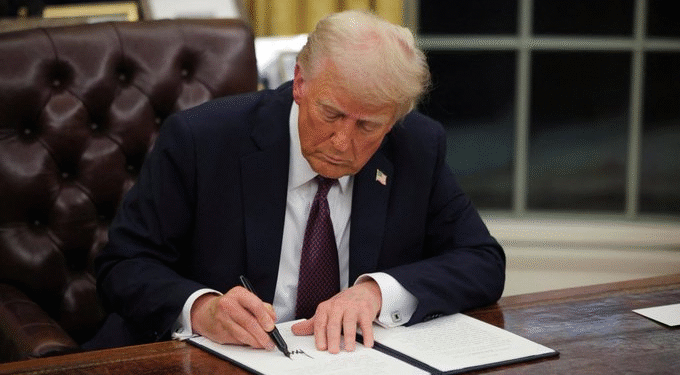U.S. President Donald Trump has announced a sweeping travel ban targeting 12 countries, with Africa emerging as the most affected continent. The new restrictions, which take effect on Monday, June 9, bar nationals from seven African nations—Chad, Congo-Brazzaville, Equatorial Guinea, Eritrea, Libya, Somalia, and Sudan—from entering the United States.
Other countries on the banned list include Afghanistan, Myanmar, Haiti, Iran, and Yemen. In addition, visa restrictions have been imposed on travelers from Burundi, Sierra Leone, Togo, Cuba, Laos, Turkmenistan, and Venezuela. Citizens from these countries will no longer be eligible for certain U.S. visas.

In a video posted on social media, Trump defended the move, saying: “We will not allow people to enter our country who wish to do us harm.” The White House called the ban a “common-sense” measure aimed at protecting Americans from foreign threats.
The administration cited weak documentation systems and a lack of security vetting capacity in some of the affected countries, especially those currently experiencing internal conflict, such as Libya, Somalia, and Sudan. The White House also noted concerns over high visa overstay rates, with Equatorial Guinea’s numbers reportedly reaching 70% for certain visa types.
Somalia responded swiftly, with its ambassador to the U.S., Dahir Hassan Abdi, expressing a willingness to collaborate with Washington to address security concerns. “Somalia values its longstanding relationship with the United States,” he said.
The travel restrictions will not affect visas issued before the June 9 start date. Dual nationals and athletes participating in upcoming international sporting events, including the 2026 FIFA World Cup and the 2028 Summer Olympics in Los Angeles, are also exempt.

This move revives a controversial immigration policy from Trump’s first term, when he signed a similar order in 2017. That ban initially targeted mostly Muslim-majority nations and was widely criticized as a “Muslim ban” before being revised and later upheld by the U.S. Supreme Court in 2018.
President Joe Biden repealed the previous ban in 2021, calling it “a stain on our national conscience.” Trump’s latest order fulfills a 2024 campaign promise and is expected to face legal challenges.









